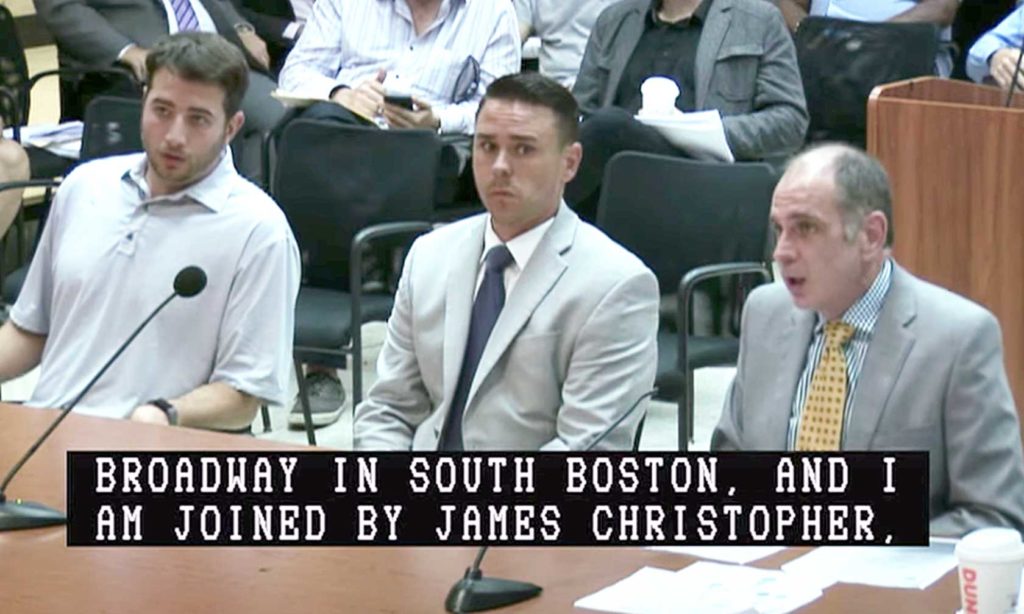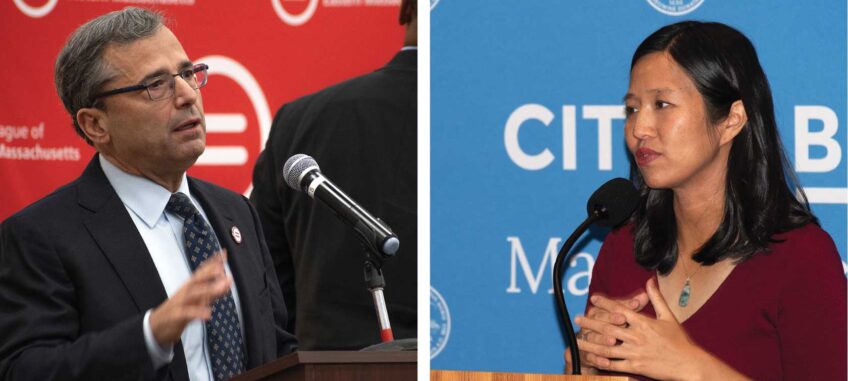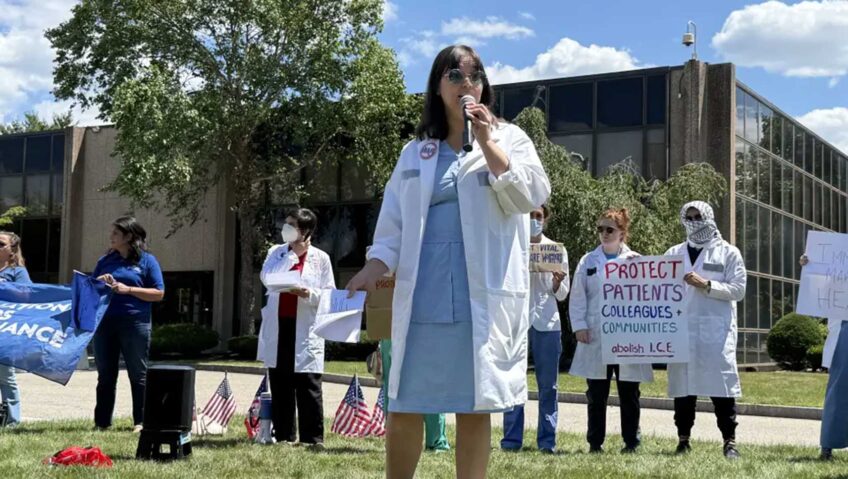The disappearing affordable units
Neighbors say developer reneged on two affordable units

Neighbors in the Fields Corner area were apprehensive in 2019 when they learned developer James McClure was planning a six-unit condominium building on a parcel of land zoned for a three-unit building.
McClure, who in 2017 built a triple-decker on an Arcadia Park lot deeded by the city for use as open space, had already raised a red flag in the Dorchester enclave near the Fields Corner MBTA stop. For this go-around, McClure would have to go before the Zoning Board of Appeal for several zoning variances to allow insufficient setbacks, excessive height and excessive floor area ratios.
The neighbors, going through the Department of Neighborhood Development, negotiated a deal with McClure: In exchange for the neighbors’ support of the variances, McClure would agree to sell two of the six units at affordable rates.
In the end, McClure agreed to designate one unit affordable for 80% of area median income and one for $120% of area median income.
But when the units sold last year, affordability wasn’t in the equation.
Unit 1, a 900-square-foot, three-bedroom unit that McClure agreed to sell for $257,500, sold for $450,000, according to records at the Registry of Deeds. Unit 3, a two-bedroom unit that McClure agreed to sell for $398,000, was briefly listed at that price, then re-listed and sold for $445,000.
“I was surprised and disappointed,” said Vivian Girard, who as president of the Fields Corner Civic Association helped negotiate the affordable units with McClure, who did not respond to a request for comment for this story.

Developer James McClure promised members of the Zoning Board of Appeal he would sell two of the six units at 24 Arcadia Park at affordable rates. All were sold at market rate.
McClure is not the first developer to renege on a commitment to build affordable units. In November, the Boston Planning and Development Agency (BPDA) sued Eighty Five Willow Court LLC for selling at market rate two units that developer Patrick Cibotti had agreed to sell for prices affordable to people earning 80% and 100% of the area median income. The area median income in 2019 was $71,115 for an individual.
The BPDA, which manages community benefits, including affordable units, on projects larger than 80,000 square feet, conducts audits of sales to ensure developers are keeping their word on affordability.
McClure’s 24 Arcadia Park development, a smaller project, fell under the purview of the Department of Neighborhood Development. Girard wants the city to seek restitution from McClure to help construct more affordable units in the neighborhood and investigate the problem.
“They should conduct an audit to see how this happened,” he said. “They should take measures to address this.”
The neighbors’ push for affordable units comes as the area is in the midst of a boom in luxury condos and apartments. Throughout the neighborhood, smaller developers like McClure are building on vacant lots, converting rental properties into condos or doing tear-downs to make way for new condo buildings.

The abutter lot at the corner of Arcadia Park and Ditson Street was deeded as open space. PHOTO: GOOGLE
“We see it all over the neighborhood,” said Carolyn Chou, who is with the affordable housing advocacy group Dorchester Not For Sale. “Any time a building sells on any of our blocks, there’s a condo conversion. I can look out my window and see the house across the street, which sold as condos for $700,000 a unit.”
Chou and others say the condo conversions and proliferation of luxury units is changing the makeup of the neighborhood.
“What they’re doing is reaching out to a more affluent demographic,” said longtime Dorchester resident Davida Andelman. “It’s pushing out people whose families have lived here for years.”
While Andelman says she and other senior homeowners are being bombarded with offers to buy their homes, she has willed hers to the Boston Community Land Trust, which will keep it affordable in perpetuity. But in many of her neighbors, real estate speculators find easy marks.
“The longer the market keeps going up, the harder it is for some people to say ‘no,’” she said.







